The Need For Diversity In Christian Fiction
How many books have you read that stood out in a way so different it was startling?
How many of those books were written by Christian authors?
Admittedly, I haven’t read a ton of “Christian” fiction (by which I mean stories that proclaim a Christian worldview). From the keyhole view I have, we have a problem, Houston. In the myriad debates about swearing, violence, sex, magic and everything else we delight in discussing, one major category often slips through the cracks.
Diversity.

Image via Pixabay
What do I mean by that?
According to the simple definition on Merriam-Webster:
The quality or state of having many different forms, types, ideas, etc.
The state of having people who are different races or who have different cultures in a group or organization
In my experience stories, on the whole, content themselves with a narrow approach—and I’m not talking about cliché plots, seen-before-characters, or ripped-off story worlds. I’m talking about races, cultures, and every other form of diversity we see in the world.
Leaving behind the aforementioned slew of debate-worthy topics, the narrow approach still makes itself painfully evident in Christian fiction.
Why?
The answer is simple. Diversity is too edgy.
At best, a gay character might make an appearance as the miraculous salvation story. A person of another religion might enter the plot to highlight everything wrong with unbelievers. Perish the thought that such “diversity” plays an integral role in the story, or impacts the lives of the characters in meaningful ways.
This may be a symptom of me not reading widely enough. But I still maintain authors, especially Christian authors, can improve their efforts in diversifying their stories.
Story diversity can come in many forms: characters of different ethnicities, beliefs, even *gasp* sexual orientation.
The problem doesn’t rest in the presentation, but in the conclusions.
Is a tattooed, drug-smoking hipster with a dirty mouth a no-no, or does her (surprise) presence contribute to the story? What’s the ultimate influence?
Should Christian fiction avoid LGBT characters like the plague? Or is it better in some cases to insert a guy attracted to another guy?
Not for the sake of political correctness or out of rebellion, but to make readers think and to explore that dynamic honestly.
To explore such themes instead of closing our eyes, covering our ears, and pretending they don’t exist (which could be detrimental in the long run).
To color the story’s canvas with a bold hue that stands out and makes the truth of the story resound more clearly.
Three reasons why diversity is important and would strengthen Christian fiction.
1. It’s true to real life
One of the many beautiful, almost magical things about fiction is the way in which it reflects reality. The stories we read sink into our souls and sear themselves onto our minds, because in so many ways, they reveal a familiarity.
We connect with characters who have similar flaws. We hold our breath during pulse-pounding plot twists because we can imagine what it would be like to have that happen.

Image via Pixabay
In a way, stories are mirrors. In them, we see many truths about our own world.
Why should this run into a concrete wall with a “You shall not pass” sign when it comes to these “perilous” elements?
If we want our stories to impact real people who live in a real world, we’d do well to throw off the shackles of narrow expectations and dare to branch out.
2. It adds depth to the story
No story should suffer the fate of presenting nothing more than a flat, stale offering. Like food, stories need spice.
The goal shouldn’t be agenda-driven, which is a major flaw of mainstream Christian fiction, at least as I’ve heard. Insert a bad-boy character who falls in love with the demure Christian girl and ends up getting saved.
Every piece of story should play some role. Nothing gratuitous or forced. Yet thinking outside the box, considering how a militaristic atheist or LGBT character could deepen a story, is something we need not fear.
3. It pulls Christian stories out of an insular box
One criticism of Christian fiction is its pitifully narrow view of what counts as a good story. No story should fear an element more on the fringe, as long as it’s handle wisely and made intrinsic to the story’s needs.
We act as if one splotch will ruin the pristine paper, instead of taking that splotch and artfully fanning it across the page into a compelling image.
Christian fiction ought not to cloister itself. It should be free to roam (within reason, of course). Because when have important themes like grace, redemption, and forgiveness, so often woven through Christian narratives, been exclusive?
Christian fiction, above all, should welcome diversity.
Diversity Done Well
 I feel the need to note a few exceptions to this lack-of-diversity problem.
I feel the need to note a few exceptions to this lack-of-diversity problem.
- The Kinsman Chronicles by Jill Williamson. King’s Folly is a tremendous story with a decidedly African-themed setting.
- The Out of Time Series by Nadine Brandes. I can honestly say this is the only series I’ve read that features albino people.
I’m sure there are more examples, but it would be encouraging to see this diverse approach taken more often.
I hope that in the future, Christian fiction can branch out, telling fantastic stories with a wide range of characters, backgrounds, perspectives, beliefs, ethnicities, and so forth.
Not to fit in or make a statement, but because by ignoring such opportunities, we miss out on the chance to tell (and read) stories with fantastic potential.
Do you think Christian stories suffer from a lack of diversity? How can or should that change?
Save



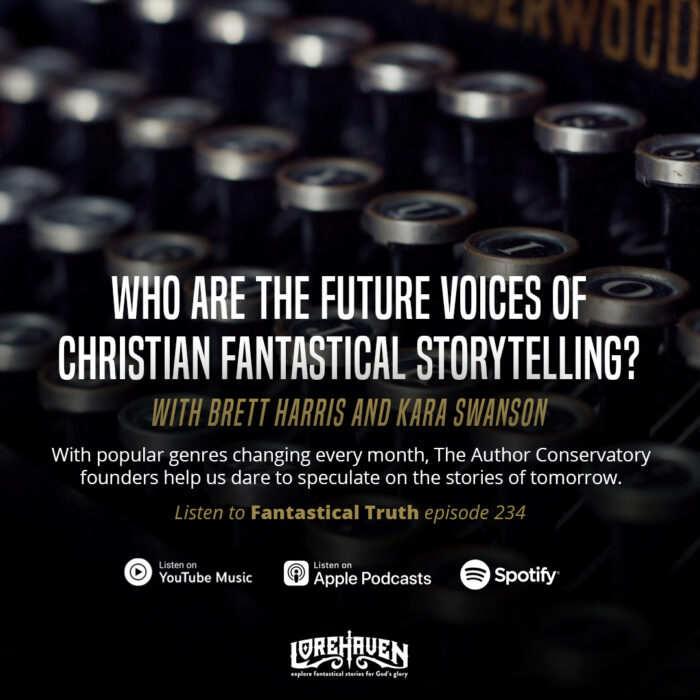


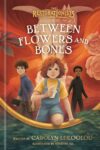
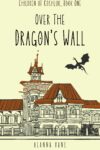




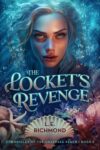
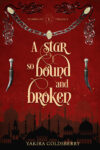
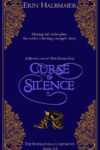

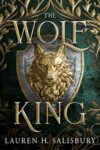


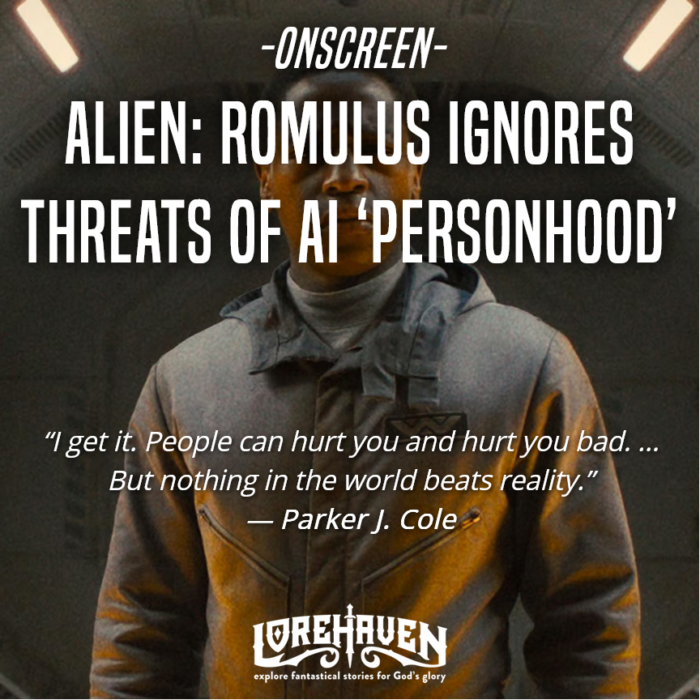

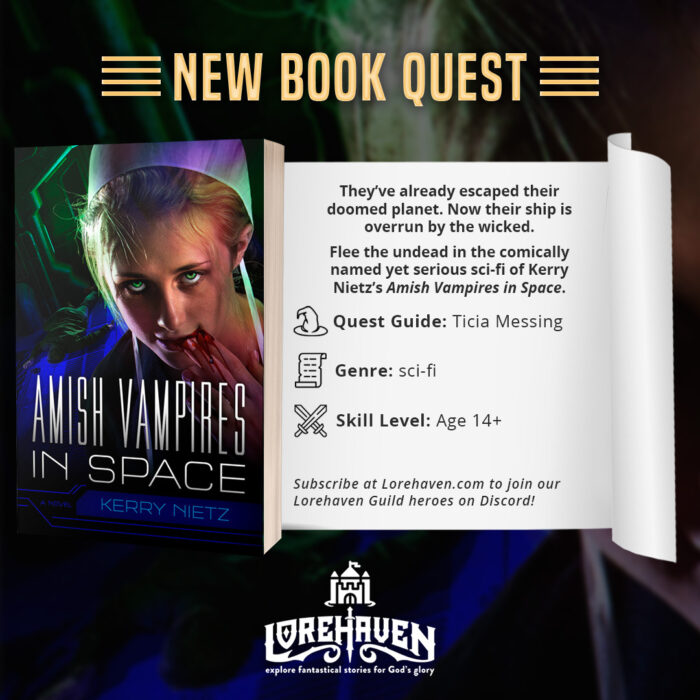













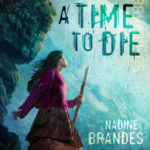



Thank you, thank you, thank you.
You’re welcome. 🙂
You had a conversation about this without mentioning the amazing writing of Carole McDonnell?
http://carolemcdonnell.blogspot.com/p/novels.html
As I said, this was from my keyhole perspective. Thanks for adding Carole as an example of exactly what I’m advocating. 🙂
Wonderful! Thanks for sharing this!
Thanks, Lisa.
Yes!! I find human sexuality and gender fascinating, and it is so frustrating that I can’t find Christian fiction that really dives into and engages with the questions surrounding these subjects. There are LGBTQ people in my own work, but as I write these characters I have no models to follow and no real ideal to live up to. If anybody has suggestions for specific works of Christian fiction that do engage with these questions, it would be wonderful if you told me!
The only thing I have to add is that please, if you’re going to add other beliefs, sexual orientations, &c, don’t use stereotypes. Please have more than just the “militaristic” atheist or “tattered, drug-smoking” lesbian. If anything, stereotyped “diverse” characters actually hurt understanding of diversity because they continue to propagate false or, at best, incomplete ideas. Do your research! Listen to others’ stories! We’re writers, complex and nuanced human beings should be our favorite kind both inside and outside of literature.
I’d say you’re better off getting to know real-life LGBT’s, unless you mean you want examples of how to portray them in a way that would actually be touched without a ten-foot pole by a Christian publisher. Which I fear might be a bridge too far.
Tangential thought: We’ve had writing prompts before, why don’t we have writing prompts about people? Like doing our best to portray people we may or may not know (or amalgamations of people we may or may not know) as practice to write realistic characters?
Like I found out recently that the church lady who lived in a little ranch house across the street from my grandma’s little ranch house, who has been passed for a few years, had a hobby of growing all kinds of irises. She and her sister would mail-order special new cultivars, and they’re probably still chugging along, neglected, in the back yard. Mom wants to ask the early-twenty-something kid who lives there now if she can dig up a few, but us kids are all like “He won’t even notice if you just walk over and poach half the beds.” Plus, it’s okay because he’s a friend of my younger sister’s boyfriend.
Naturally – if I want to get to understand real-life people, then the best way to do that is to, well, get to understand real-life people, not just book people. That being said, though, I think literature can let you engage with ideas in a different way than real-life people do. It’s complementary to actual relationships – it can’t replace them, but it can help make them better, I guess is what I’m saying.
I’m not quite sure what your first point, is Notleia. What I’m suggesting is authors be more open to looking outside the Christian box. As for the purpose of, for example, including an LGBTQ character, that’s up to the author, and should be done without stereotyping or slandering, but in a realistic, respectful way. The problem I see is that Christian authors either don’t want, or don’t think they have the freedom, to go down that path in their stories in the first place.
Love the writing prompt idea! 😀
EDIT: Didn’t realize you were replying to Sheesania’s comment. :-/
Great point about avoiding stereotypes. That’s another trap Christian authors often fall into, in sooo many ways. If we’re going to include these diverse characters, we need to do them justice and present them in as real a was as possible.
Wow, good thought. I would love to see a good novel about the struggle of an LGBT youth written from a perspective that doesn’t encourage it as a secular viewpoint would, but doesn’t hide from the much needed conversation from a biblical worldview. That would be rather helpful and potentially culture changing in a good way. Good food for thought Zachary. 🙂
This story would be amazing, groundbreaking, and heartbreaking, but oh, such potential to explore a realistic person’s pain and struggles and finally redemption.
Yes, totally agree. So when are you publishing it? 😉
Thanks, Karisa. And that’s exactly the type of story I’m talking about and wishing we would see more of from a Christian worldview.
This is something I’ve felt strongly about for years. I wondered, when I read Christian fiction, where were the black, Asian, etc. people? They all seemed to be about WASPs living in America. So I made it my personal mission to have as many diverse characters as is conceivable, Black, Asian, Native American, you name it, I more than likely have at least one character who fits the bill.
That’s great, Tamra. Good for you! In my not-so-work-in-progress fantasy series, I have a race with darker skin. Not exactly African, since this is a fantasy world, but definitely not “white.”
I recall reading precisely one Christian story with Asians as main characters… and precisely none with Black main characters. It wasn’t fair, and even as a fifth grade kid I knew it. I don’t know if my books (younger spectrum middle grade fantasy) are the venue for LGBT conversations, but I will have racial diversity, as well as denominational and family type diversity. Family diversity is almost as important as racial diversity IMHO.
My “African” characters are actually centaurs so we have something in common there. 😉
The Kinsman Chronicles series I mentioned in the post features several races, and two of the top handful of POV characters are black.
Yes, good point about family diversity. So many options, yet authors don’t use variety as much as they could.
Very good point! Thank you, it’s definitely something missing in Christian fiction and something that is overlooked in discussions about Christian fiction.
I’ve had this same thought. In the book I’m currently brainstorming for, I’ve banned myself from using Western cultures as a basis for the primary groups, which means a lot of research.
Good idea, Katherine. And in all honesty, if you’re writing fantasy, avoiding Western cultures is a great way to weed out the many cliches that plague the genre.
You’re right, Zachary. Count me in. My novel Jezebelle just released features the murderous ghost of an antebellum southern belle. Her enemy? The HERO? A young southern woman of color. So I, not being of that particular culture and hue of epidermis, engaged in something as diverse as that gets, especially in today’s climate. Diversity is necessary in today’s world if we are the reach the world. Unless we want to stay in our little everyone looks and thinks just like me tide pool. Just sayin’.
Thanks, HG. That’s definitely an original concept. Sounds like a fascinating story. The thing writers have to be careful of when crossing cultural, racial, or any other boundaries, is to be sure they’re dealing respectfully and honestly with the subject, and not falling into stereotypes.
My first book features a diverse cast and my protagonist is a person of color. While I don’t regret the choice to cast my book this way, especially given that the book’s theme deals with racism, Johnny Came Home was quite nearly a work of unnatural diversity. Let me explain. The book is set in West Virginia. There was a lot more diversity (percentage-wise) presented in my book than what is actually reflected in my state’s demographics. It worked in Johnny because of the theme, but my point is that the diversity should not be forced into a story for the sake of diversity itself
When it comes to race, I admit to having a hard time noticing it in books. Christian fiction may be behind in that department, but I haven’t read a ton recently, so it’s kind of hard for me to call. I do remember the Seven Sleepers series had a black character in the seven characters. (There was a moral about racism, which was poorly done since it stereotyped the racist character.)
A while back, I did a blog post about the lack of diversity in stories, where I mostly mentioned moral diversity, which is pretty important to stories but often lacking, especially in Christian fiction. Even in secular fiction, most people seem to have the same morals as the author. It’s rare that anyone will ever believe differently about something, such as drinking, dating, or swearing. (I don’t think I’ve ever once seen a YA book where the guy and girl came from different cultures, say one who prefers dating while another is into courting.) I’ve only seen a few good examples of moral diversity, mostly in Sanderson’s stories and a few shows like Firefly where the good characters have morals that don’t change due to them being converted.
I myself am a little afraid to include homosexuality or fortification. The reason I’d rather not include these is that they’re currently places where some readers might be struggling with, so I don’t want to normalize them in the readers’ eyes. However, I do have one story where I plan to have a Muslim who doesn’t get converted. Originally, I’d been trying to figure out how to convert the guy, then I realized, “I hate it when the Christian turns their back on Christ in a secular book.” I knew I didn’t want to do that to a Muslim reader, so I decided the guy’s keeping his faith.
I meant fornication, not fortification. Whoops.
Aaaand now I’m speculating about what Freud would think of a slip like that.
“Mmmm, girl, you crenelate my merlons.”
LOLOLOLOLOLOL
I know this article is 5 years old, but it encouraged me to see a discussion about this since my WIP works with some things mentioned here.
Currently writing an LGBTQ-led adult contemporary novel that shamlessly intersects with fundamental Christian faith.
Both parties are honestly portrayed with no “preaching” involved. The narrative makes its point on its own.
Hoping to have it published in the next year or two.